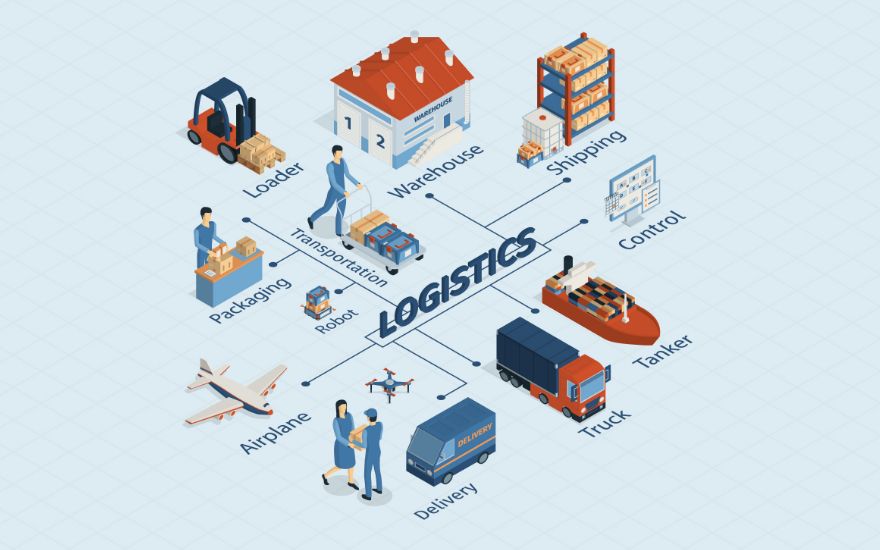The logistics industry is rapidly evolving, driven by technological advancements, consumer expectations, and global economic shifts. As companies strive to stay competitive, they are increasingly turning to Custom Logistics Software Development to meet their unique needs. This shift is just one of the many trends that are set to shape the future of logistics.
1. Automation and AI Integration
Automation and artificial intelligence (AI) are transforming logistics operations. Automated warehouses, autonomous vehicles, and AI-driven analytics are becoming commonplace. These technologies help companies reduce human error, increase efficiency, and cut costs. For example, automated sorting systems in warehouses can significantly speed up the processing of orders, while AI-powered route optimization can ensure faster and more efficient deliveries.
2. Sustainability and Green Logistics
Environmental concerns are pushing the logistics industry towards more sustainable practices. Companies are increasingly adopting green logistics strategies, such as using electric vehicles, optimizing delivery routes to reduce emissions, and implementing energy-efficient practices in warehouses. The shift towards sustainability is not only beneficial for the environment but also helps companies meet regulatory requirements and improve their brand image.
3. E-commerce and Last-Mile Delivery
The rise of e-commerce has significantly impacted the logistics industry. The demand for fast and reliable last-mile delivery services is higher than ever. Companies are investing in advanced logistics solutions to handle the increased volume of deliveries and meet customer expectations. Innovations like drone deliveries and autonomous delivery vehicles are being explored to make last-mile delivery more efficient.
4. Blockchain Technology
Blockchain technology is emerging as a game-changer in logistics. It provides a secure and transparent way to track goods across the supply chain. By using blockchain, companies can reduce fraud, ensure the authenticity of goods, and improve traceability. This technology is particularly valuable in industries where the origin and handling of goods are critical, such as pharmaceuticals and food.
5. Data Analytics and Big Data
Data analytics is becoming increasingly important in logistics. Companies are using big data to gain insights into their operations, identify inefficiencies, and make data-driven decisions. Predictive analytics, for example, can help companies anticipate demand, optimize inventory levels, and reduce the risk of stockouts. Real-time data tracking also allows for better visibility and control over the supply chain.
6. Globalization and Trade Policies
Globalization continues to influence the logistics industry. As companies expand their operations across borders, they must navigate complex trade policies and regulations. The ongoing shifts in global trade agreements and tariffs can impact the flow of goods and require companies to adapt quickly. Logistics providers must stay informed about international trade laws to avoid disruptions in their supply chains.
7. The Internet of Things (IoT)
The Internet of Things (IoT) is revolutionizing logistics by connecting various devices and systems across the supply chain. IoT devices, such as sensors and RFID tags, provide real-time data on the location and condition of goods. This level of visibility allows companies to monitor shipments, reduce losses, and ensure timely deliveries. IoT technology also enables predictive maintenance of logistics equipment, reducing downtime and operational costs.
8. Resilience and Risk Management
Recent global events, such as the COVID-19 pandemic, have highlighted the importance of resilience in logistics. Companies are now focusing on building more robust and flexible supply chains that can withstand disruptions. Risk management strategies, including diversifying suppliers, increasing inventory buffers, and investing in digital tools, are becoming essential for maintaining business continuity.
9. Customer Experience and Personalization
Customer experience is becoming a key differentiator in logistics. Companies are leveraging technology to provide personalized services and real-time updates to customers. For instance, offering multiple delivery options, flexible delivery windows, and real-time tracking information can enhance the customer experience. As customer expectations continue to rise, logistics providers must find ways to deliver more personalized and responsive services.
10. Collaborative Logistics and Shared Economy
The concept of collaborative logistics, where companies share resources and infrastructure, is gaining traction. This approach helps reduce costs and improve efficiency, especially for smaller companies that may not have the resources to build extensive logistics networks. The shared economy model is also being applied to logistics, with platforms emerging that connect shippers with carriers, optimizing the use of available transportation capacity.
Conclusion
The logistics industry is undergoing significant transformations driven by technology, sustainability, and changing consumer demands. To remain competitive, companies must stay ahead of these trends and adapt their operations accordingly. From automation and AI to sustainability and blockchain, the future of logistics is set to be more efficient, transparent, and customer-focused. By embracing these trends, logistics providers can position themselves for long-term success in an increasingly complex and dynamic market.
FAQs
1. What is the role of AI in logistics?
AI in logistics helps automate processes, optimize routes, and analyze data to improve efficiency and reduce costs. It can also enhance decision-making by providing real-time insights into operations.
2. How does blockchain technology benefit logistics?
Blockchain provides a secure and transparent way to track goods across the supply chain, reducing fraud, improving traceability, and ensuring the authenticity of products.
3. Why is sustainability important in logistics?
Sustainability is important because it helps reduce the environmental impact of logistics operations, meets regulatory requirements, and improves a company’s brand image.
4. What is the impact of e-commerce on logistics?
E-commerce has increased the demand for fast and reliable last-mile delivery services, pushing companies to invest in advanced logistics solutions and explore new delivery methods like drones.
5. How does the Internet of Things (IoT) improve logistics operations?
IoT devices provide real-time data on the location and condition of goods, enabling better visibility, reducing losses, and ensuring timely deliveries. IoT also allows for predictive maintenance of logistics equipment.

